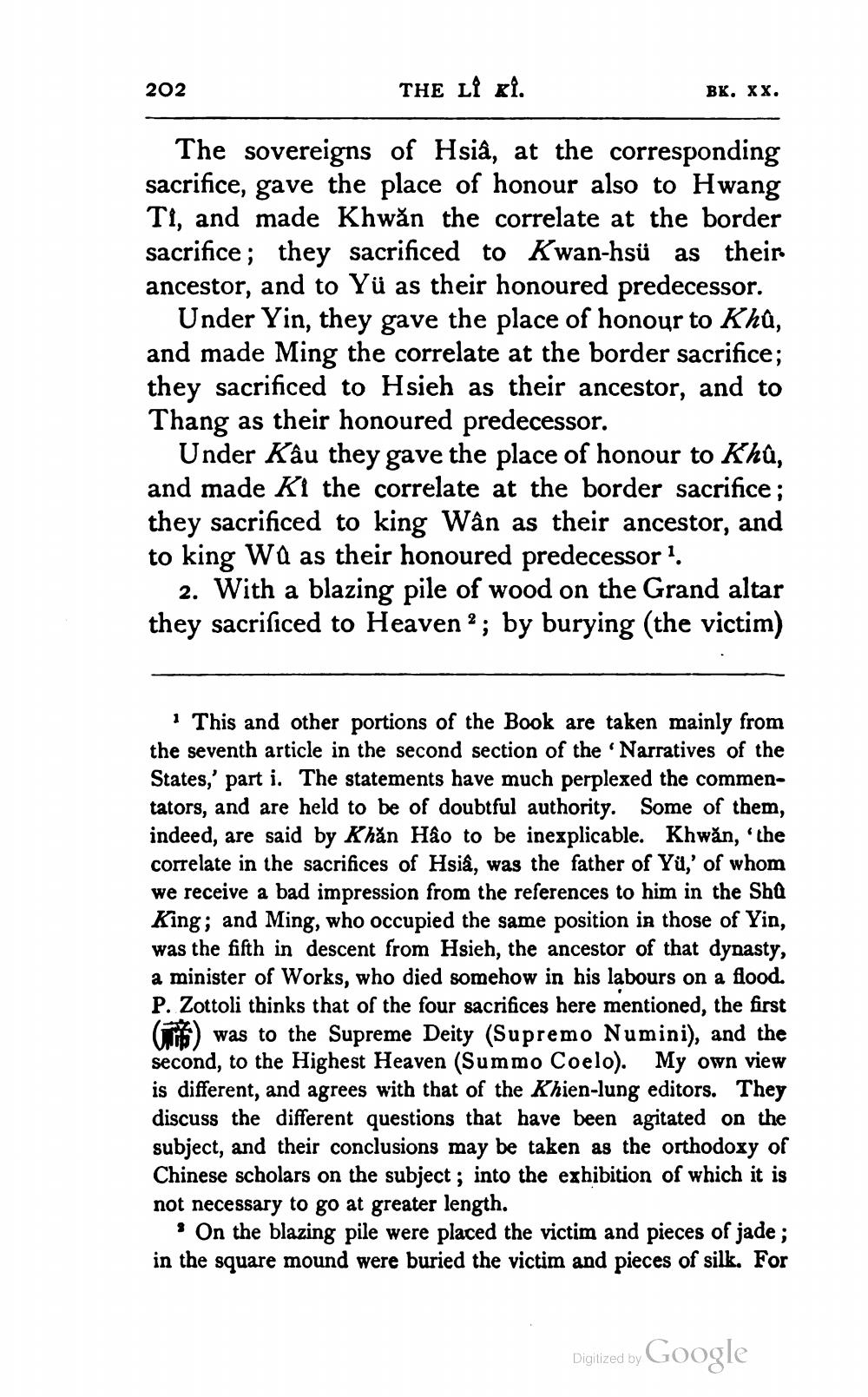________________
202
THE LÎ xi.
BK, XX.
The sovereigns of Hsiâ, at the corresponding sacrifice, gave the place of honour also to Hwang Ti, and made Khwăn the correlate at the border sacrifice; they sacrificed to Kwan-hsü as their ancestor, and to Yü as their honoured predecessor.
Under Yin, they gave the place of honour to Khů, and made Ming the correlate at the border sacrifice; they sacrificed to Hsieh as their ancestor, and to Thang as their honoured predecessor.
Under Kâu they gave the place of honour to Khû, and made Ki the correlate at the border sacrifice; they sacrificed to king Wân as their ancestor, and to king Wa as their honoured predecessor 1.
2. With a blazing pile of wood on the Grand altar they sacrificed to Heaven”; by burying (the victim)
1 This and other portions of the Book are taken mainly from the seventh article in the second section of the Narratives of the States,' part i. The statements have much perplexed the commentators, and are held to be of doubtful authority. Some of them, indeed, are said by Khăn Hảo to be inexplicable. Khwăn, the correlate in the sacrifices of Hsiâ, was the father of Yü,' of whom we receive a bad impression from the references to him in the Shû King; and Ming, who occupied the same position in those of Yin, was the fifth in descent from Hsieh, the ancestor of that dynasty, a minister of Works, who died somehow in his labours on a flood. P. Zottoli thinks that of the four sacrifices here mentioned, the first (s) was to the Supreme Deity (Supremo Numini), and the second, to the Highest Heaven (Summo Coelo). My own view is different, and agrees with that of the Khien-lung editors. The discuss the different questions that have been agitated on the subject, and their conclusions may be taken as the orthodoxy of Chinese scholars on the subject; into the exhibition of which it is not necessary to go at greater length.
* On the blazing pile were placed the victim and pieces of jade; in the square mound were buried the victim and pieces of silk. For
Digitized by Google




